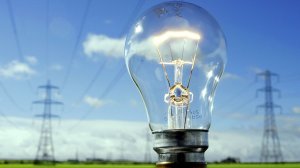September 19, 2014.
For Creamer Media in Johannesburg, I'm Shannon de Ryhove.
Making headlines:
South Africa’s electricity prices hurt the poor, despite protection measures.
The South African Reserve Bank holds the repo rate at 5.75%, as Gill Marcus steps down.
And, France will set up a military hospital to fight Ebola in West Africa.
Despite apparent legitimate reasoning behind State-owned power utility Eskom’s electricity tariff increases, increased costs would undoubtedly hurt those in the lower portion of South Africa’s income distribution.
Consulting firm Frost & Sullivan Africa energy and environmental research associate Thembie Chehore pointed out that the utility’s tariff increases had grown from a modest rate of 5.1% in 2006/7 to a peak of 31.3% in 2009/10.
He said that part of Eskom’s justification for the price increases had rested on the claim that, historically, South Africa had had some of the lowest tariffs in the world and that, despite the tariff increases since 2006/7, the country continued to have considerably low tariffs compared with other countries in the developed and developing world.
However, he cautioned that when rolling out reforms in future, government and Eskom would have to ensure that individuals at the lower end of the income spectrum were not adversely affected – both in theory and in implementation.
South Africa's Reserve Bank Governor Gill Marcus left interest rates unchanged at 5.75% on Thursday, as expected, saying the domestic growth outlook had deteriorated further.
She then announced she would be stepping down on November 8 at the end of her five-year term, sending the rand to 11.10 against the dollar, its weakest since February.
"Despite the 75 basis point increase so far this year, monetary policy remains accommodative and will continue to be supportive of the domestic economy subject to achieving its primary inflation-targeting objective," Marcus said.
The bank hiked rates in January and July, trying to stem inflationary pressures in Africa's most advanced economy.
France will set up a military hospital in West Africa in the coming days as part of that country’s contribution to the fight against the Ebola outbreak there, President Francois Hollande said on Thursday.
Hollande said that France's response to the outbreak would not be limited to a financial contribution to European funds being made available to fight the virus, which the World Health Organisation said on Thursday had claimed 2 630 lives so far.
Also making headlines:
Opposition parties serving on the ad hoc committee on misspending at President Jacob Zuma's Nkandla home failed to persuade the African National Congress to call Public Protector Thuli Madonsela next week, followed in short order by the president himself.
Cabinet announced that infrastructure development on the African continent has gained momentum, with a special office to be set up soon, to champion this cause.
And, President Jacob Zuma said national government was committed to supporting all struggling municipalities to become functional and efficient.
Also on Polity:
A report by The New Climate Economy sets out a ten point Global Action Plan for governments and businesses to secure better growth in a low-carbon economy.
Remember to vote in Polity’s opinion poll on whether you think culpable homicide-convicted paralympian Oscar Pistorius will serve time behind bars.
Don’t forget to follow Polity on Twitter [@PolityZA]
That’s a roundup of news making headlines today.
EMAIL THIS ARTICLE SAVE THIS ARTICLE
To subscribe email subscriptions@creamermedia.co.za or click here
To advertise email advertising@creamermedia.co.za or click here










